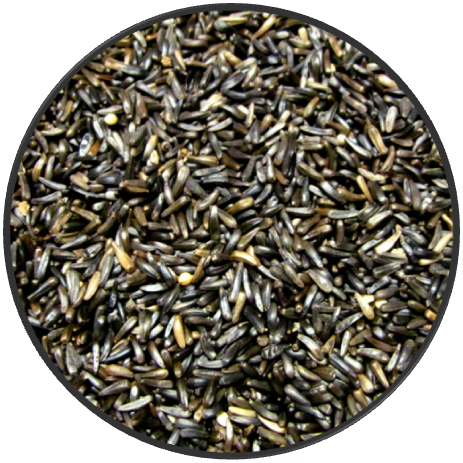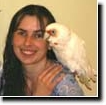
Niger Seed
(Guizotia abyssinica)

Niger, technically a fruit called an achene, is often used in seed mixes and is a favourite of finches, especially the Goldfinch and the Greenfinch. The seed of the African yellow daisy Guizotia abyssinica, it is known by many names.
Originally called niger in reference to Nigeria and the plant’s origin, the name was trademarked as Nyjer ® in 1998 by the Wild Bird Feeding Industry to clarify pronunciation.
Many backyard birders also call the seed thistle, but in fact niger is not related to thistle plants or seeds. It is believed that calling the seed thistle may have become popular because goldfinches, which adore niger, also feed on thistle and use thistle down to construct their nests.
The basic nutritional components of Niger are:
- 35 percent fat (25 percent minimum)
- 18 percent protein (16 percent minimum)
- 18 percent fiber (20 percent maximum)
- 12 percent moisture (maximum)
Because of this composition, niger is especially popular as a winter bird food at a time when birds require foods with more oil and a higher calorie content so they can store fat to survive colder temperatures.
The protein in niger is also useful for regenerating feathers when birds molt in the late fall and early spring.
Packaging:





